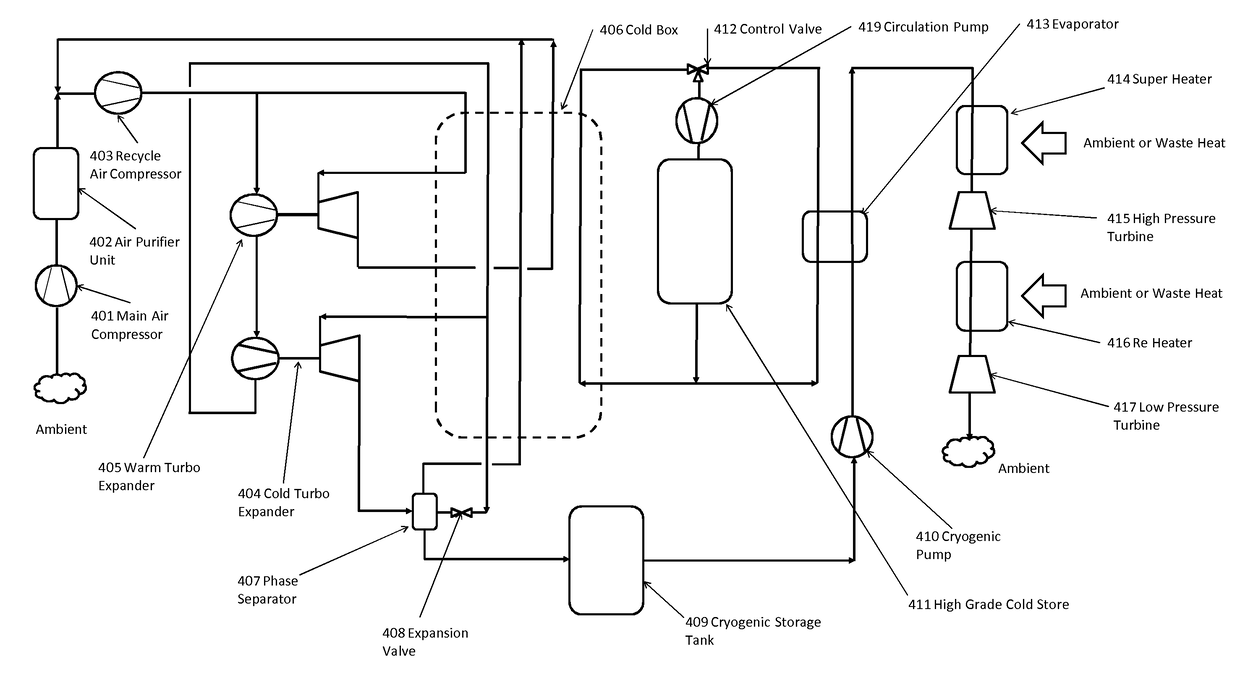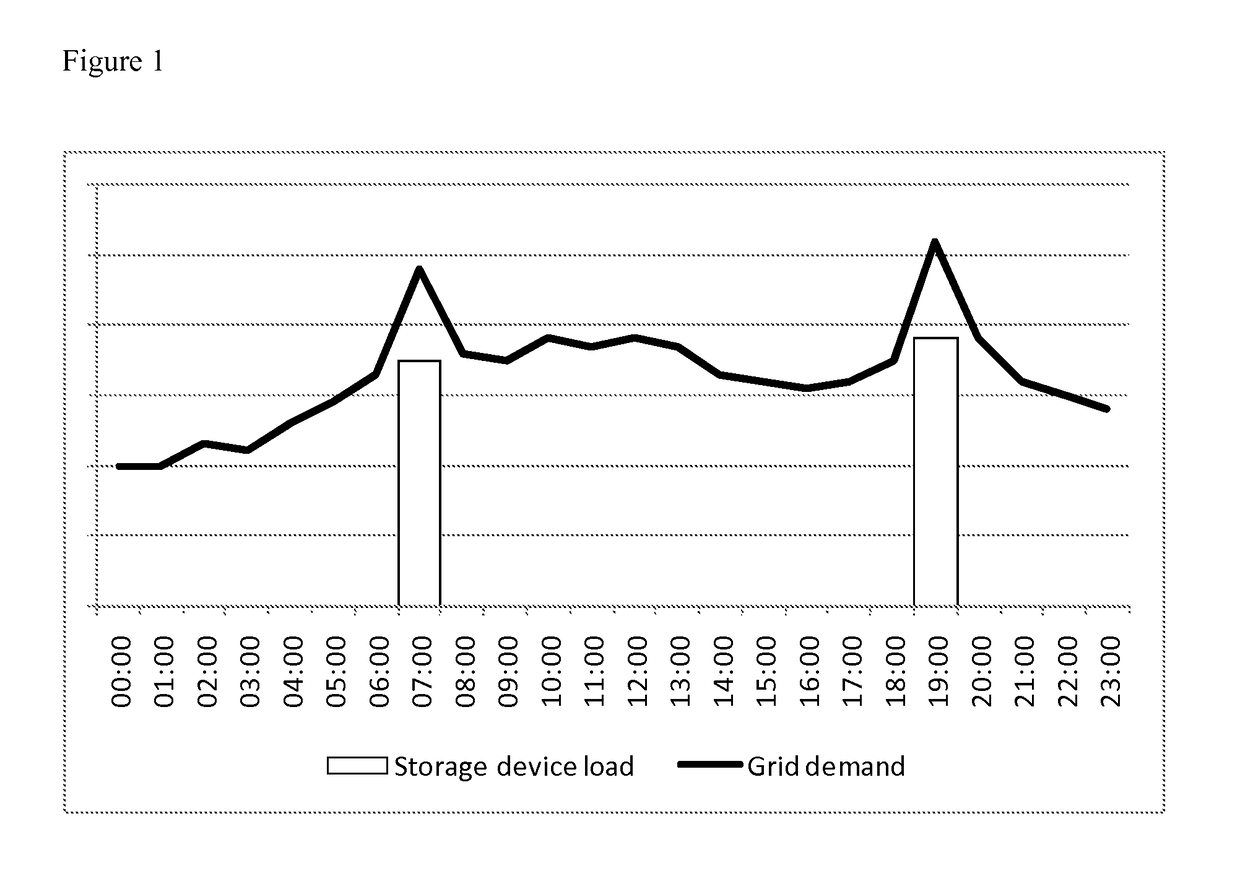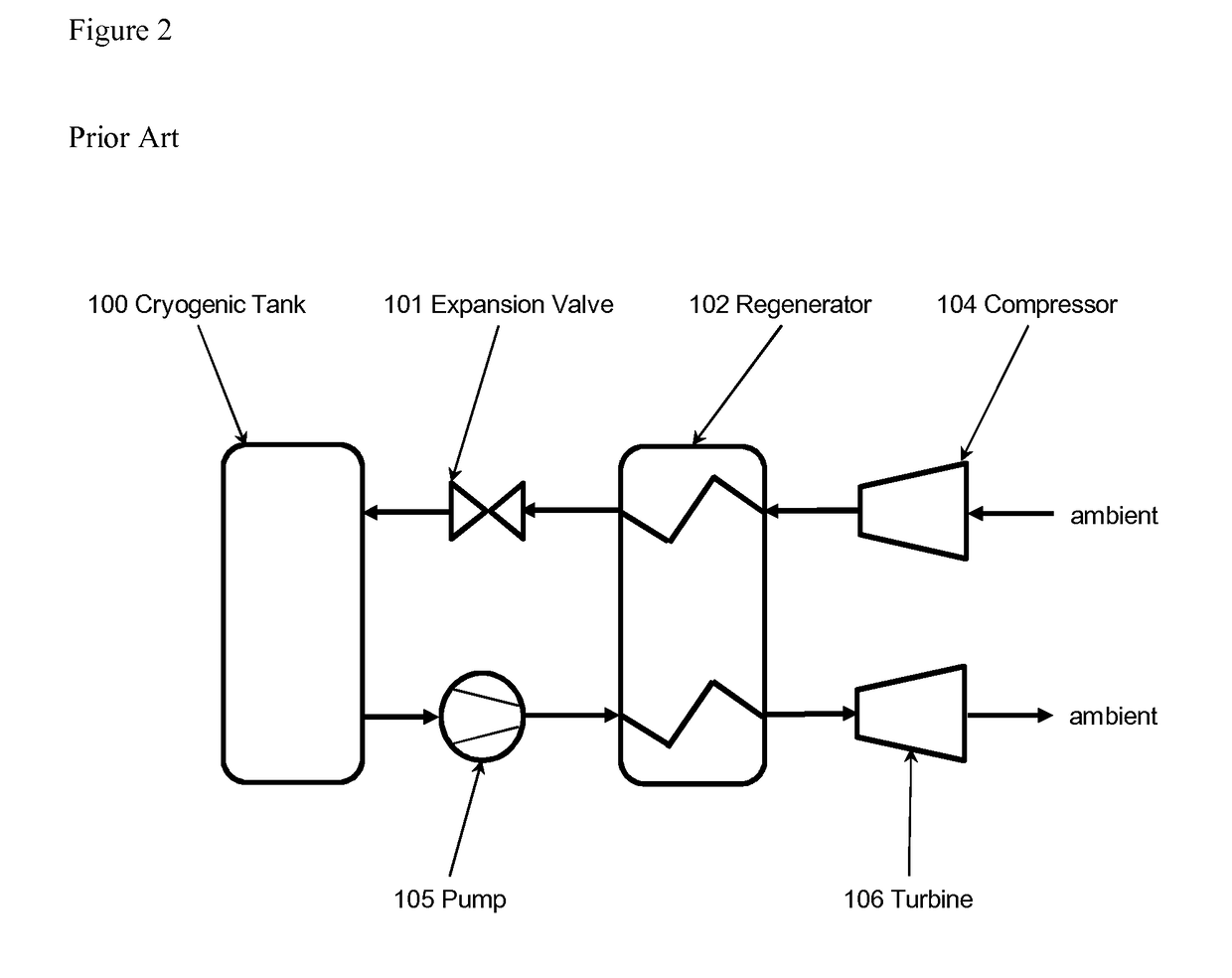Method and apparatus for power storage
a technology of power storage and power supply, applied in the direction of lighting and heating equipment, machines/engines, containers discharging methods, etc., can solve the problems of reducing the efficiency of the supply side in this way, affecting the efficiency the availability of parts of the generation fleet, so as to reduce the energy consumption of the liquefied. , the effect of effective us
- Summary
- Abstract
- Description
- Claims
- Application Information
AI Technical Summary
Benefits of technology
Problems solved by technology
Method used
Image
Examples
Embodiment Construction
[0157]FIG. 4 shows a schematic of a first simplified embodiment of the present invention. The system of FIG. 4 is similar to that shown in FIG. 2 except that the regenerator shown in FIG. 2, in which the process gasses flow directly through the regenerator, is replaced in FIG. 4 by a thermal store with an intermediate very low pressure heat transfer loop.
[0158]During the power recovery (discharge) phase of the cycle, the cryogenic fluid is first transferred from the storage tank 100 to the pump 105 where the fluid is compressed to high pressure, of at least 30 bar, more preferably at least 50 bar, and more typically 100 to 200 bar. Cold thermal energy is transferred via a heat exchanger, referred to as the evaporator 302, to a heat transfer fluid that circulates between the evaporator and thermal store 301 via a very low pressure heat transfer loop 104. The heat transfer loop typically consists of connecting pipework, a circulation pump and associated instruments and control valves....
PUM
 Login to View More
Login to View More Abstract
Description
Claims
Application Information
 Login to View More
Login to View More - R&D
- Intellectual Property
- Life Sciences
- Materials
- Tech Scout
- Unparalleled Data Quality
- Higher Quality Content
- 60% Fewer Hallucinations
Browse by: Latest US Patents, China's latest patents, Technical Efficacy Thesaurus, Application Domain, Technology Topic, Popular Technical Reports.
© 2025 PatSnap. All rights reserved.Legal|Privacy policy|Modern Slavery Act Transparency Statement|Sitemap|About US| Contact US: help@patsnap.com



